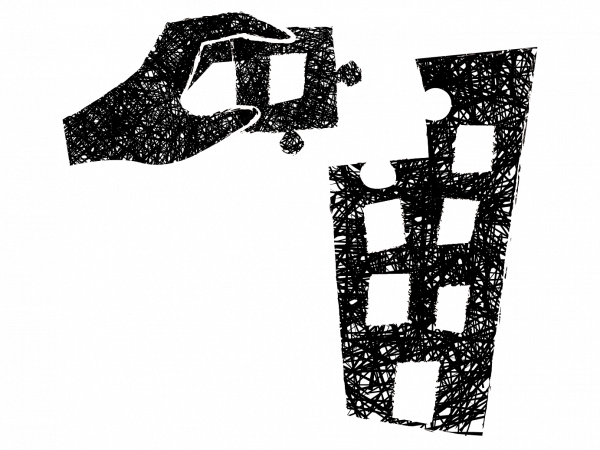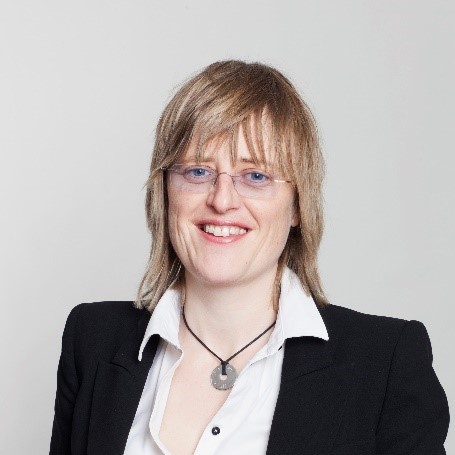- Home
- EN
- Our impact
- ProspeKtive
- The services dimension is essential to bring real estate into the IT world

The services dimension is essential to bring real estate into the IT world
May 2021
Expert
With the acceleration of remote work, companies must more than ever increase the use value of their buildings to make them evolve into fluid, sustainable and secure service platforms. This service-based approach to information systems is essential to the construction of the smart building. Pascal Zératès, Managing Director of Kardham Digital, gives us his analysis.
Tribune published in Alliancy, the digital and business mag (May 2021)
Less time spent in the office, more user experience
On the rise again according to the latest survey from the Ministry of Labor*, teleworking seems to keep employees away from the office a little more each day. Make no mistake, although they will come to the company less often, employees nevertheless expect a new experience, that of working better together. With the acceleration of the hybridization of work, more than ever organizations must rethink the journey of employees and visitors within their walls.
They must increase the added value of the office, offer a differentiating experience, seek quality of life, recreate cohesion and social ties. Digital will make it possible to better manage these new spaces to increase the value proposition through a global approach. It makes it possible to work on this useful notion which is the quality of life at work by offering value-added services: automation services, contextualized information in relation to the employee's environment. It brings him superior comfort, allows him to better manage his time and his daily journey.
These new environments must also provide employees with all health security guarantees, in real time. A real challenge for property managers and real estate companies who must update buildings at the risk of creating disenchantment with users, tenants or lessees. Because if we can already see that the reduction in office space has a financial impact on business property, it risks worsening once the leases expire if there is no such desire to renovation of buildings and therefore increase the use value of the building.
An open, flexible and secure building information system
To do this, organizations must therefore review their entire building information system. This implies looking at the subject not only through the prism of technology but of usage: how to build and streamline this human journey by giving tools to space managers so that they can evaluate the gauges. But also how to give employees the means to find an available workspace, to reserve the various resources that go from the parking lot to the meeting room, while checking the availability of a place in the company restaurant, etc. Let us recall as an example, that mobility is not only thinking of installing a wireless connection, it is making the network follow to the user with his security, and whatever his environment, whether he either at home or in a building on the ground floor or on the 8th floor.
Reviewing a building's information system therefore means thinking about convergence platforms, always with this idea of a user experience at its peak. So that the employee can interact with the same fluidity with home automation as that with which he can interact at home. The notion of latency on applications must therefore also be integrated because an information system that is poorly used is very expensive. The software mille-feuille is to be avoided, digital sobriety is also a major subject. Here again, we must ask ourselves the question of use value and work on solutions that converge thanks to stable and secure communication routes. Because it is obvious that the IT infrastructure and the business applications of the building must integrate this essential notion of the security of the data which one finds elsewhere in any other information system.
Buildings therefore need an IT infrastructure on which it will be possible to rely on all the new uses that we know today. But a base that is also sufficiently open to its environment and evolving to be able to accommodate the new uses of tomorrow. This is part of a broader smart city dynamic, since tomorrow buildings will have to interconnect with other intelligent systems in order to be able to exchange information. So, when we talk about a building network, it is not a question of thinking about 2 or 3 years but about 5, 7 or even 10 years. A few months ago, we weren't talking about a building information system, we were talking about GTB (Technical Building Management), Building Operating System, we perceived that the real estate sector was trying to appropriate these subjects of IT but that it was still in its infancy.
Businesses must seize the opportunity of the health crisis as a tremendous opportunity to tackle these issues. Because the question is not to think about the digital or the smart building of tomorrow. Digital is no longer an option. Secure by design, user experience, mobility are no longer options. The issue today is not whether to do it, but how to do it. And let's do it. The real estate industry is embracing the IT industry with unprecedented added value. The tertiary building thus constitutes its own information system, with its safety rules, architecture, applications, and a disruption that is organized around usage, CSR and quality of life at work.
Valuing the use of the building is not just knowing which IT infrastructure to build. It is also and above all to think about the operation of this information system on the basis of service contracts. Only this new paradigm will allow the clock of the building to be resynchronized with that of the IT.
*Survey results reported by Le Parisien
Release date: May 2021



